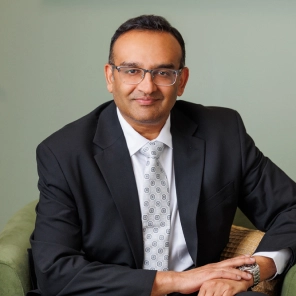Reclaiming Your Health

At Ethos Spa, we understand that testosterone replacement therapy (TRT) can be life-changing for many, providing renewed energy, strength, and vitality. However, we also know that TRT is not meant to be a lifelong treatment, and the time may come when you decide to come off after years of use.
This major transition can be challenging without the proper guidance and support. That’s why we’re here to help smooth your path to coming off TRT after a decade or longer on treatment.
The good news is that with proper medical guidance, perseverance and healthy lifestyle habits, you can withdraw from TRT safely after prolonged use. At Ethos Spa, our goal is to empower you on this journey with holistic care, monitoring and therapies to restore your natural vitality.
In this blog, we will explore:
- How long-term TRT impacts natural hormone regulation
- Challenges of withdrawing from TRT after 10 years
- Step-by-step protocol for discontinuing TRT
- Lifestyle measures to reactivate natural testosterone
- Ongoing wellness care to optimize hormones long-term
The Physiological Effects of Stopping TRT Cold Turkey
First, let’s explore what could happen if you just stopped all TRT medications abruptly after 10 years or more of daily use.
To be clear, we do not advise stopping cold turkey – this carries significant risks. However, it’s important to understand why a gradual tapering off process is essential.
If you stop TRT suddenly after extended use, you may experience what’s known as a crash – plummeting levels of testosterone in your body far below normal baseline ranges. This sets off a chain reaction of withdrawal symptoms: severe fatigue setting in, loss of muscle mass and strength, low mood and depression, irritability, low sex drive, insomnia, “brain fog”, even emotional instability.
Some have described cold turkey TRT withdrawal as debilitating, as their bodies had become so accustomed to external testosterone.
Again, we strongly advise against just quitting TRT medications outright after long term use. The hormone crash, testosterone deficiency, and subsequent withdrawal symptoms can be so disruptive that patients often resume TRT just to function normally again.
To avoid this, you must take a gradual approach to coming off TRT properly.
Step-by-Step Protocol for Withdrawing from Long-Term TRT

The following provides an overview of key steps in safely discontinuing TRT after prolonged use:
- Discuss plans for coming off TRT with your doctor – Your physician can help you taper dosage and prescribe adjuvant medications while monitoring your health. Allow at least several months for the transition.
- Taper TRT dosage gradually – Decreasing your testosterone dosage slowly over weeks gives your body time to adjust and restart its own production. This avoids sudden hormone withdrawal.
- Take HCG during the tapering phase – Human chorionic gonadotropin (HCG) mimics LH to help stimulate natural testosterone output before fully stopping TRT.
- Begin Clomid/enclomiphene therapy – These medications block estrogen receptors to spur LH/FSH release. This further drives natural testosterone production after coming off TRT.
- Adopt a tailored supplement regimen – Herbal agents and micronutrients can aid healthy testosterone levels and manage withdrawal effects. Our clinicians can provide custom formulations.
- Implement optimized nutrition and lifestyle protocols – Your diet, exercise regimen, sleep and stress management profoundly impact hormone balance and TRT withdrawal.
- Get follow-up testing done regularly – Frequent lab work ensures your testosterone levels are recovering at the proper rate while monitoring overall health.
- Consider bioidentical hormone replacement if needed – Temporary use of bioidentical testosterone or compounds like DHEA can smooth the transition period if endogenous testosterone remains low.
- Seek emotional support and coaching – The mental and emotional aspects of stopping TRT after relying on it for years can be challenging. Our mind-body therapies can help.
- Commit to ongoing wellness care – Even after withdrawing from TRT, obtaining regular health monitoring, testing and treatment will help sustain natural hormone optimization long-term.
Restarting Natural Testosterone Production Post TRT

A key goal when discontinuing TRT after extended use is restarting your body’s innate testosterone production again.
But after 10 years or more of testosterone treatment, your endocrine system can become suppressed or even dormant. The hypothalamic-pituitary-gonadal axis (HPGA) responsible for natural hormone production has been absent for so long, it requires coaxing to reactivate.
It is essential to take proactive measures to revive your HPGA mechanism alongside tapering off synthetic testosterone. This awakens your system to begin producing testosterone naturally again. Here are some proven ways to “switch on” your body’s testosterone factories after years on TRT:
- Introduce SERMs like clomid, which stimulate the pituitary gland to release hormones that trigger testosterone production. Clomid is commonly taken when tapering off TRT.
- Administer HCG, which mimics LH to directly stimulate testicular testosterone secretion. Short HCG protocols can quickly restore natural levels.
- Try gonadotropin therapy, particularly hMG, which contains both FSH and LH to resuscitate the hypothalamic-pituitary-gonadal axis.
- Optimize vitamin D, zinc, magnesium and other essential nutrients critical for healthy testosterone synthesis.
- Lose weight if overweight – excess fat tissue drives down testosterone.
- Incorporate resistance training to activate testosterone-boosting muscular adaptation.
- Reduce stress and get quality sleep to support the endocrine system.
- Avoid alcohol, smoking and drugs as these can impair testosterone production.
With diligent application of such strategies under medical supervision, you can restart your body’s innate hormonal pathways after weaning off prolonged TRT. Although it may take 3-9 months for full testosterone recovery, you will eventually reactivate your natural production.
Transitioning to a TRT-Free Lifestyle
Once you’ve successfully tapered off TRT and restored your natural testosterone production, one of the biggest challenges is adapting to everyday life without supplemental hormones.
You may not feel the same burst of energy, strength and stamina you became accustomed to on testosterone therapy – and that’s completely normal. Here are some tips to ease the transition:
- Be realistic – your physiology cannot replicate how you felt at the peak of TRT. Set reasonable fitness goals and pace yourself as your body adjusts.
- Maintain exercise discipline – even if your workouts suffer initially, persist with resistance training to drive natural testosterone output.
- Double down on nutrition – well-planned meals and testosterone-friendly foods will help you maximize natural hormones.
- Consider intermittent fasting – IF raises testosterone while optimizing many other metabolic factors.
- Prioritize quality sleep – at least 7 hours per night, along with habits like limiting screen time before bed.
- Manage stress – from meditation to massage, control stress so it doesn’t tank your testosterone levels.
- Explore supplements – tribulus, ashwagandha, magnesium and others may provide hormonal support, under guidance.
With commitment to healthy lifestyle fundamentals, the absence of TRT will become your “new normal”. Make sustainable, testosterone-optimizing habits part of your everyday routine independent of exogenous hormones.
The Ethos Spa Difference: Your Partner for TRT Independence

At Ethos Spa, we recognize the multifaceted challenge of coming off TRT after years of use.
But our expertise in both medical aesthetics and holistic wellness makes us uniquely positioned to guide you through this transition. Our experienced team will be your trusted resource before, during and after you come off TRT.







